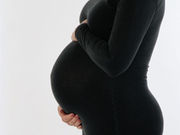VKA, LMWH tied to lowest risk of adverse maternal, fetal outcomes, respectively
WEDNESDAY, May 31, 2017 (HealthDay News) — Anticoagulation for mechanical heart valves during pregnancy is associated with distinct maternal and fetal risks, according to a review published in the June 6 issue of the Journal of the American College of Cardiology.
Zachary L. Steinberg, M.D., from the University of Washington School of Medicine in Seattle, and colleagues compared the risk of adverse maternal and fetal outcomes in pregnant women with mechanical heart valves receiving different methods of anticoagulation. Data were included for 800 pregnancies from 18 publications. The women were receiving either a vitamin K antagonist (VKA) throughout pregnancy; low-molecular weight heparin (LMWH) throughout pregnancy; LMWH for the first trimester followed by a VKA; or unfractionated heparin (UHA) for the first trimester followed by a VKA.
The researchers found that the composite maternal risk was lowest with VKA compared with LMWH, LMWH and VKA, or UFH and VKA (5 versus 16, 16, and 16 percent, respectively). The lowest composite fetal risk was seen with LMWH versus VKA, LMWH and VKA, or UFH and VKA (13 versus 39, 23, and 34 percent, respectively). Women taking ≤5 mg daily warfarin and those with an LMWH regimen had no significant difference in fetal risk.
“VKA treatment was associated with the lowest risk of adverse maternal outcomes, whereas the use of LMWH throughout pregnancy was associated with the lowest risk of adverse fetal outcomes,” the authors write.
One author disclosed financial ties to GlaxoSmithKline.
Copyright © 2017 HealthDay. All rights reserved.








